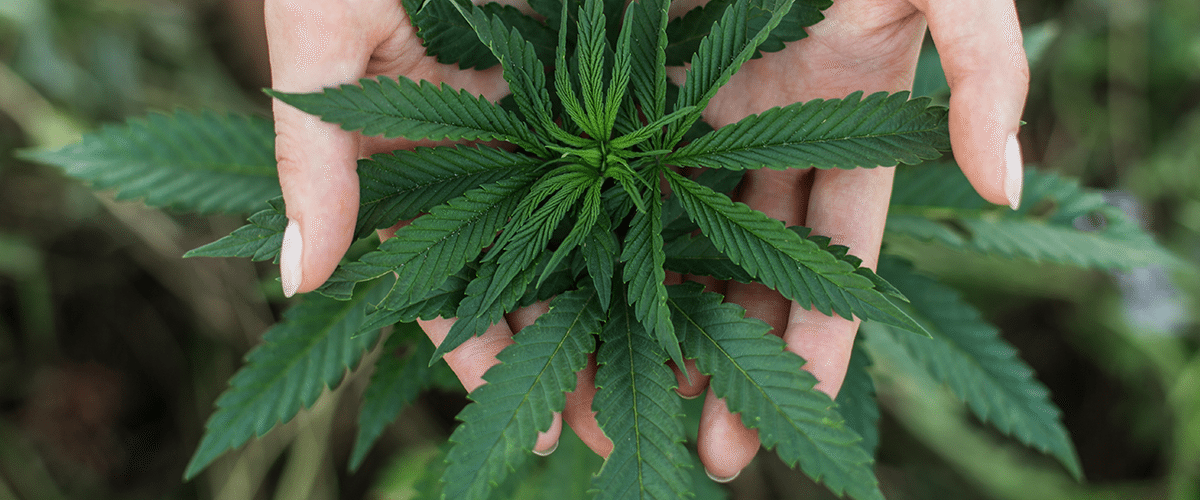[vc_row][/vc_row][vc_row][vc_column][vc_column_text]
Findings in a new comprehensive review uphold the research that has found CBD safe for human consumption.
Evidence indicates that cannabidiol (CBD), a natural non-psychoactive compound derived from cannabis plants like marijuana and hemp, is safe for human consumption, according to a new research review published in Cannabis and Cannabinoid Research.
A pair of investigators from Germany research center nova-Institut, Iffland Kerstin and Grotenhermen Franjo, set out to extend the findings of Mateus Machado Bergamaschi’s 2011 comprehensive survey on the safety and side effects of CBD. Bergamashi’s study had found controlled CBD to be safe in humans and animals. The new review confirmed those findings.
“This review could substantiate and expand the findings of Bergamaschi et al. about CBD favorable safety profile,” the review concluded.
Kerstin and Franjo’s review was meant to build on the studies mentioned in Bergamashi’s study and to update it with new findings since it was published. The investigators included both preclinical and clinical trials.
Studies indicate that CBD has no adverse physiological effect on blood pressure, heart rate, body temperature, glucose levels, pH, pressure exerted by carbon dioxide or oxygen, hematocrit, gastrointestinal transit, emesis, rectal temperature, or potassium and sodium levels. In one study, administering 60 mg/kg of CBD to mice three days per week for 12 weeks was found to have no adverse effects, including the ability to control bodily movements, rounding of the back, involuntary tremors, swaying gait, tail stiffness, urination, defecation, or vocalization behavior.
Even chronic use of CBD in humans has shown the cannabinoid to have no neurological, psychiatric, or clinical adverse effects. No respiratory depression or cardiovascular complications have been recorded.[/vc_column_text][/vc_column][/vc_row][vc_row][vc_column][vc_single_image image=”18038″ img_size=”1200×250″ onclick=”custom_link” img_link_target=”_blank” link=”https://www.medicalmarijuanainc.com/what-is-cannabidiol/”][/vc_column][/vc_row][vc_row][vc_column][vc_column_text]Kerstin and Franjo’s review reports findings indicating CBD is potentially beneficial for treating heroin addiction, reducing seizures, managing psychosis, inhibiting cancer, and reducing anxiety, and that the cannabinoid possesses immunomodulatory and neuroprotective properties. These benefits were observed without any reported adverse effects, though some studies found CBD’s acute anti-anxiety effects in animals were reversed after chronic administration.
The review does present evidence on CBD drug interactions, including the medications metabolized by enzymes belonging to the cytochrome P450 family. The P450 enzyme group is responsible for metabolizing many of the commonly used prescribed medications, including Lipitor (atorvastatin), Xanax (alprazolam), caffeine, naproxen, ibuprofen, acetaminophen, and codeine. CBD’s effect on the P450 enzymatic system could alter how the drugs are metabolized and increase their effects.
Clinical studies show CBD can inhibit the enzymes CYP2D6 and CYP2C9, potentially reducing the metabolization of medications like omeprazole, risperidone, warfarin, and diclofenac. Additionally, in vitro studies have found that CBD inhibits the ABC transporters P glycoprotein and Breast Cancer Resistance Protein, which may prevent some anticancer drugs from binding to transporters.
Some of CBD’s drug interactions have shown to be beneficial. One 8-week-long clinical study on children with epilepsy found that CBD’s interaction with isozymes CYP3A4 and CYP2C19 increased the bioavailability of the antiepileptic medication clobazam, in turn making it possible for the patients to effectively manage seizures while reducing their dose of the antiepileptic drug.
The investigators acknowledged that more research on CBD’s safety profile is needed and in particular urged for more clinical research investigating the effects of chronic use of CBD on genetic material, hormones, and the immune system.
You can access the entire review, “An Update on Safety and Side Effects of Cannabidiol: A Review of Clinical Data and Relevant Animal Studies,” via Cannabis and Cannabinoid Research.
Learn more about findings regarding CBD and its effects through our education page. Keep up with the latest studies on CBD and other cannabinoids by regularly visiting our news feed.[/vc_column_text][/vc_column][/vc_row]






